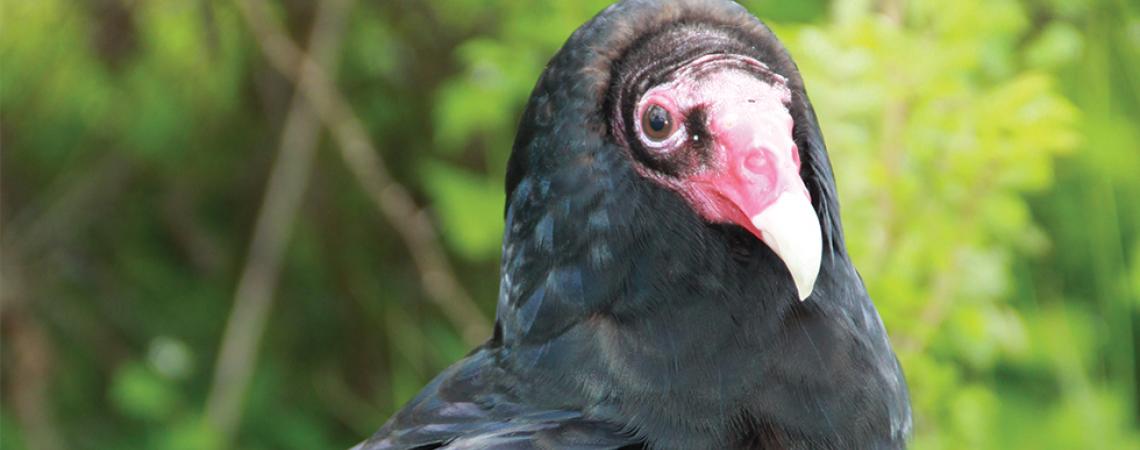Photo by Chip Gross
Ohio, the Buckeye State, was admitted to the Union in 1803, but even 15 years later it remained a very wild place — too wild, in the opinions of some settlers, and they determined to do something about it, frontier style.
Near Hinckley, in the northeast quarter of the state, large predators — mainly black bears and timber wolves — were killing livestock almost nightly. Writing in 1890 in The American Field, one of the early outdoor magazines of the time, a Captain Milton B. Pierce said that the settlers were “seriously embarrassed” by the many wolves ravaging their sheep. In one incident alone, wolves slaughtered more than 100 sheep over several wilderness farms. In addition, bears often raided hog pens.
To put an end to the depredation threatening their livelihood, the pioneers came up with the idea of conducting a grand hunt, one that would encompass the entire township. At dawn on the day before Christmas in 1818, some 600 men and boys (many recruited from around the state) surrounded Hinckley Township. Most of the men carried a firearm, likely a musket. The boys were armed with either bayonets or large butcher knives mounted on long poles.
Once everyone was in position, the signal was shouted down the line to begin moving slowly forward, toward the center of the circle. Almost immediately white-tailed deer began bounding from cover in high arching leaps, tails erect; wolves ran in confused circles, searching for escape routes; bears lumbered toward the hunters in such numbers as they had never seen before. And above the melee flew flocks of wild turkeys, trying to make their escape over the line of firing hunters.
The carnage was over by late afternoon. Taken in the hunt were more than 300 deer, 21 bears, 17 wolves, and countless numbers of smaller game such as turkeys and raccoons. Only two hunters were reported injured. The game animals — deer and turkeys — were divided equally among the men, many no doubt consumed the next day as family Christmas dinners. The predators were skinned for their pelts — a $15 bounty was paid for each pelt, many of the carcasses left to rot.
Known as a “circle hunt,” the Great Hinckley Hunt of 1818 was the largest of its kind ever held in Ohio.
Buzzard town
Today, the small town of Hinckley is famous for one thing: buzzards, also known as turkey vultures. There’s even the likeness of a buzzard on the town’s logo. Officials used to claim that the vultures returned to Hinckley and the surrounding area from their migration trip south each winter precisely on March 15. It’s a myth, of course. During some years of milder weather, the birds return weeks earlier. But hey, it’s an excuse for a late-winter party.
The Buzzard Day celebration this year at Hinckley Reservation, a Cleveland Metropark, is set for Thursday, March 15, and there is a tie-in to the Great Hinckley Hunt. Legend has it that vultures were first attracted to the area by the stench of the thawing predator carcasses left behind from the Great Hinckley Hunt of 1818. That, too, is myth. Vultures return to Hinckley each year — both then and now — to take advantage of the high rock ledges in the area, on which they nest and roost.
Since 2014, Sharon Hosko, manager of Brecksville Nature Center, has been the official “Buzzard Spotter” for Cleveland Metroparks.
“On March 15, people begin gathering as early as 6 a.m. at the Buzzard Roost at Hinckley Reservation Metropark, before it’s even daylight,” she says. “And we begin watching for the soaring turkey vultures around 7 a.m. It’s definitely a ritual of spring in this part of Ohio.”
Hosko added that anywhere from 50 to 200 people usually attend, depending upon the weather. “We’ve been doing this every year since 1957, and people still come from across the country. Some come every year.”
Then, the following Sunday — this year, March 18 — there is a bigger celebration in downtown Hinckley, organized by the Hinckley Chamber of Commerce. Included in the festivities is a popular breakfast at the town hall where “buzzard pancakes” are served, the proceeds going to local scholarships.
W.H. “Chip” Gross, a member of Consolidated Electric Cooperative, is Ohio Cooperative Living’s Outdoors Editor.









